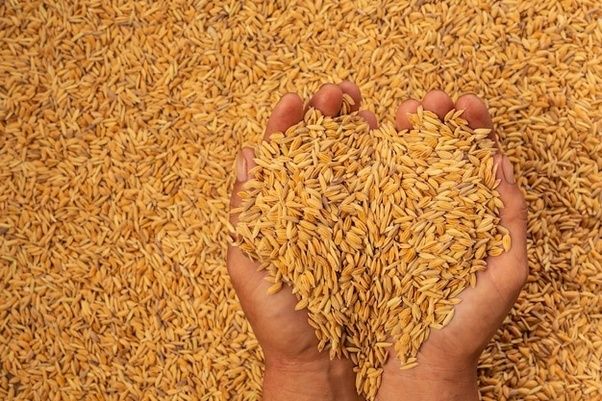Amidst surging wheat prices, Indian officials are actively considering a range of measures to stabilize the domestic wheat market and alleviate concerns about rising costs. The prices recently reached a six-month high, prompting a series of discussions on how to manage the situation. This development has not only caught the attention of global markets but has also sparked significant attention within India. The government’s response is a reflection of its commitment to ensuring food security and controlling inflation in a nation where food holds significant socio-political weight.
In a move that raised eyebrows, India banned wheat exports last year in response to a sudden surge in temperatures that severely impacted wheat output. This decision aimed to secure domestic supply while also helping meet global demand in the wake of the Russia-Ukraine conflict. However, the ban failed to arrest the rise in wheat prices, leading to concerns that this year’s crop might also fall short of the government’s initial estimates of a record 112.74 million metric tons.
This year’s ban on wheat exports, coupled with the suspension of India’s largest rice export category in July, has underscored the government’s urgency to address rising food prices. These actions, while aimed at domestic stability, also reflect India’s role in the global food market and its efforts to curb inflation in the world’s most populous country.
The primary concern for the Indian government is the potential impact of rising wheat prices on the upcoming general election. With Prime Minister Narendra Modi’s Bharatiya Janata Party (BJP) set to face elections next year, maintaining control over inflation and food prices becomes crucial. The BJP aims to secure power in key state assemblies, and any surge in food inflation – a significant contributor to the overall consumer price index – could stir unrest among voters and provide ammunition for opposition parties.
History provides a stark reminder of the consequences of inflation on political outcomes. In 2014, the BJP capitalized on persistently high inflation to defeat the Congress party-led coalition. As India’s economy, the third-largest in Asia grapples with an acceleration of inflation, the government is keen to prevent history from repeating itself. Recent data indicates that food prices surged by 7.75% year-on-year in July, a stark contrast to the 1.24% decline witnessed in June.
Beyond wheat and rice, the government is also grappling with the challenge of taming the prices of vegetables and pulses. The complexity of India’s agricultural ecosystem demands a multifaceted approach to addressing inflationary pressures.
While India’s wheat stocks seemed sufficient due to the distribution of free wheat to beneficiaries during the COVID-19 lockdowns, lower output in recent years has led to slower replenishment of reserves. Despite wheat stocks being higher on August 1 compared to the previous year, they remain lower than the 10-year average. The government’s efforts to calm prices include offering 5 million metric tons of wheat to bulk consumers such as flour millers and biscuit makers.
To further mitigate the wheat shortage, India might need to consider imports. Estimates suggest that the country may require 3 to 4 million metric tons of wheat to bridge the gap between demand and domestic production. One potential solution could involve reducing or eliminating the 40% import tax on wheat, enabling flour millers to import the grain. However, this move could inadvertently impact global prices, potentially rendering overseas purchases uneconomical for private traders.
Another strategy on the table is exploring government-to-government wheat imports from top producers like Russia. Such deals could see India importing a substantial amount of wheat, far beyond its immediate requirement. This approach not only aims to bolster wheat stocks but also aligns with the government’s intent to provide more free grain to marginalized sections of the population.
As India navigates its battle against rising wheat prices, the strategies it adopts will undoubtedly shape both its domestic and international standing. With food security and inflation control at the forefront, these measures are not only economic but carry deep socio-political implications. The outcome will determine the nation’s ability to strike a balance between stability and prosperity for its citizens.


